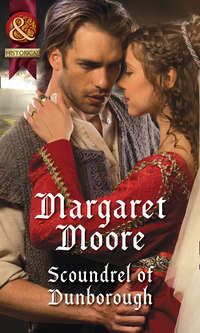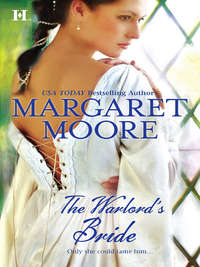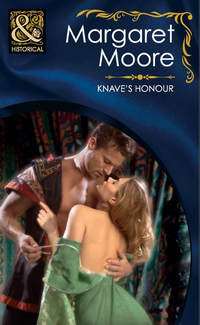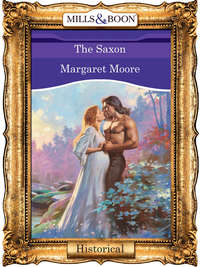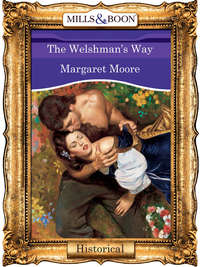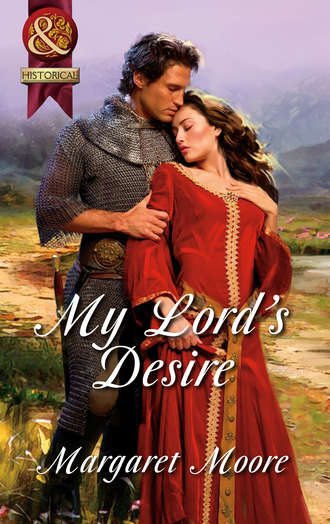
Полная версия
My Lord's Desire
“No, and you know why not,” Armand replied, unable to keep the hostility from his voice as he contemplated the reason for that decision.
“What will you say to anyone else who asks?”
“The truth.”
Randall took hold of Armand’s arm and pulled him behind the nearest farmer’s cart. “For God’s sake, Armand, do you want to be accused of treason?” he demanded in a fierce whisper.
Armand shook off his friend’s grasp. “I’m no traitor. I swore my oath of loyalty to John and I’ll keep it, although I rue the day I put my honor in his hands. It’s because of John that I nearly died in that dungeon. It’s because of John that my squire and several good men did, and it’s John’s fault my brother is still imprisoned in Normandy.”
“Even so, you must take care, Armand, especially when you’re not completely recovered from your injuries—or are you?” Randall’s gaze darted to Armand’s right knee that had been struck hard with a mace and left to mend on its own while he was imprisoned.
“Almost,” he replied, although his knee ached like the devil most of the time. His arms were still weak, and his voice was a little rough from the lingering cough he’d suffered for over a fortnight. Still, he was much better than he’d been the last time Randall had seen him.
“But not yet, so you must be careful,” Randall persisted. “John sees conspiracies everywhere, and your oath may not protect you. And your estate alone would be enough to encourage greedy, ambitious men to poison John against you. If you’re accused of treason, what will happen to Bayard then?”
Armand’s jaw clenched before he answered, although he knew his friend was right. He’d have to be cautious in this nest of vipers. “I’ll be careful.”
“Good,” Randall replied with genuine relief. “Now let’s get something to eat. John and the queen are still abed, so you won’t have to see them right away.”
“Thank God. Otherwise my appetite might disappear completely.”
“I’M GLAD you’re feeling better,” Adelaide said to Eloise de Venery as they sat on a stone bench in the castle garden later that morning.
Sweet, kind and pretty, Eloise was Adelaide’s one true friend at court. She was also genuinely good, trustworthy and blessedly free of ambition.
Nearby, several of the courtiers were playing a game of bowls on the flat, lush lawn that formed the center of the garden. Their goal was to get their ball nearest to the one in the center, and to block or knock away any others that were closer.
Around the outside of the garden were walks bordered by beds of flowers and sweet-smelling herbs. Roses climbed the walls, and several alcoves and nooks had been created with vines and lattices.
Lord Richard D’Artage was about to take his turn. He was the most vain peacock at court, spending hours every morning on his hair and clothes. There were rumors that he had padding in the shoulders of his tunics, and that his hair owed its color as much to art as to nature.
Other young noblemen looked on and offered their advice, whether it was welcome or not, and more than one was somewhat the worse for wine. Several ladies were also in attendance, including the ambitious, sharp-tongued Lady Hildegard, with her piercing eyes and pointed chin.
Adelaide was quite happy to watch the other courtiers play their games, whether it was bowls, or bantering, or maneuvering for power. She preferred to be ignored, although her damnable beauty made that all but impossible.
Eloise gave her a sheepish look. “I wasn’t really sick this morning. I just didn’t want to be near Hildegard for a while.”
“Understandable,” Adelaide said. Hildegard was no favorite of hers, either.
Eloise sighed. “She always manages to upset me. I wish I were more like you, Adelaide. Nothing she says bothers you.”
“Because I don’t care whether Hildegard likes me or not,” Adelaide truthfully replied. Only the king’s opinion of her mattered, as he was the one who held power over her fate, as well as that of her sisters.
Eloise still looked upset, so Adelaide sought to lighten her mood. “Randall FitzOsbourne was watching you dance last night.”
Eloise’s head shot up like an eager puppy’s, and then she flushed and looked down at the stone walk at her feet. “Oh, I don’t think so. He must have been looking at someone else.”
“He certainly was looking at you,” Adelaide assured her. “Perhaps tonight you should speak to him.”
“I couldn’t! What would I say? He’ll think I’m being too forward.”
“I doubt that. You’re the most modest woman at court. I’m sure he likes you. Unfortunately, he’s as shy and modest and unassuming as you are. Perhaps if you were to speak to him first—”
“I just couldn’t! Besides,” Eloise woefully continued, “since his friend’s arrived, he probably won’t even remember I exist.”
“What friend is this?” Adelaide asked, trying to sound nonchalant despite the excitement that coursed through her. As far as she knew, there was only one new arrival at court—the man she’d met in the stables. She’d heard of no others.
“Lord Armand de Boisbaston,” Eloise said. “You weren’t here when he was last at court, or I’m sure you’d remember him. He’s a very handsome man.”
That had to be the knight she’d met in the stable. “I think I may have seen him,” Adelaide said, oddly reluctant to tell Eloise about her encounter with the man in the stable. “Does he have long hair?”
“My maid said it’s nearly to his shoulders. Marguerite was fluttering about like a loosed pigeon when she told me about him. Wait until the ladies of the court hear he’s come back. They’ll be just the same. I wonder why he hasn’t cut his hair, though. He used to be quite neat and tidy in his appearance before he went to Normandy. Did you think he was handsome?”
“Yes.”
“I’m surprised it’s taken him so long to return to court. He’s been free for weeks now.”
“Free?” Adelaide prompted, remembering the scars on his wrist.
Eloise lowered her voice to a whisper. “He commanded one of John’s castles in Normandy. They were besieged for months waiting for reinforcements, but John never sent any. Lord Armand finally surrendered when the French king threatened to fire the town and kill everyone in it. Afterward, Lord Armand and the knights who were with him, as well as their squires, were imprisoned until ransoms could be paid. Those who paid quickly were freed in a fortnight or so. Others weren’t so fortunate. It took months for Lord Armand’s friends to raise the funds. His family’s estate was left rather barren after equipping an older half brother to go on crusade with Richard the Lionheart. The poor fellow died before he even reached the Holy Land. Lord Armand’s younger half brother is still imprisoned in Normandy waiting to be ransomed.”
“He has…had…two half brothers?”
Eloise nodded. “Raymond de Boisbaston had three legitimate sons by two different mothers, and from what I’ve heard, probably a few bastards, as well.”
“If the son resembles his father, I can understand why women would be eager to go to his bed,” Adelaide mused aloud, thinking of Lord Armand’s smile and bewitching brown eyes.
Eloise nodded at the courtiers playing bowls. “The other unmarried noblemen aren’t going to be happy that Lord Armand has returned.”
“He has no wife then?”
Eloise shook her head.
Adelaide tried not to be pleased, or relieved, by that knowledge. After all, marriage was something to be avoided, unless she wanted to be subject to a man’s whims and commands, and treated as less important than his dogs or his horses. She would have no man beating her for birthing “useless” girls instead of sons.
And if he were handsome and had a voice that seemed to promise pleasures that were surely sinful, he would surely never be faithful.
“Maybe John will give him a well-dowered wife as a reward for his loyalty and suffering,” Eloise suggested. “Then he could use the dowry to ransom his brother. Maybe that’s why he’s come to court.”
“Perhaps,” Adelaide agreed, glad she’d been implying that her family was relatively poor by dressing simply. The only jewelry she wore was her mother’s crucifix. It was old, and although made of gold and emeralds, it was a modest piece compared to the jewellery other ladies of the court flaunted.
“Oh, how unfortunate!” Lady Hildegard cried as Lord Richard rolled his ball and missed. “The ground must be uneven, or I’m sure you would have won.”
“Too bad, Richard. You nearly had me,” Sir Francis de Farnby, the winner of the game, said with self-satisfied triumph. He was more attractive than Lord Richard, with fair hair, broad shoulders and a narrow waist; however, like Lord Richard, he was well aware of his personal attributes and his family’s wealth and prestige. He was the sort of man who expected everyone to be as impressed with him as he was with himself.
Adelaide stifled a frown as he sauntered toward them.
“Ah, my lady, I feared the fairies had captured you and taken you for their own this morning,” he said when he reached them, ignoring Eloise. “You seemed to vanish into thin air.”
It was all Adelaide could do not to roll her eyes and tell him she would vanish from his sight right now if she possessed the power. “No doubt you missed Lady Eloise, too. Are we not fortunate she’s feeling better?”
Francis glanced at Eloise, who gave him the sort of benevolent smile she reserved for very small children and very stupid adults.
“Yes, of course,” he said, turning back to Adelaide, and quite oblivious to Eloise’s lack of admiration. “Where did you go? I searched high and low for you. I nearly called out the guard.”
“I went to the stable.”
“If you wished to ride out, my lady, you had but to ask. I would gladly have accompanied you.”
No doubt he would have tried to get her off her horse, the better to seduce her, too.
“I wasn’t dressed for riding and that wasn’t my purpose,” she replied. “I find the company of horses soothing.”
The kittens had been an unexpected source of amusement, and as for the arrival of Lord Armand de Boisbaston…
“I doubt the horses appreciate your exquisite beauty and grace as much as I,” Francis said, his tone softly flattering and his expression adoring.
Oh, God save her from fawning, foolish—
“By all the devils above and below, if it isn’t Sir Francis de Farnby,” a slightly raspy, familiar male voice declared nearby.
Adelaide’s face heated with an unstoppable blush as Lord Armand de Boisbaston strolled toward them, followed by Randall FitzOsbourne.
Lord Armand had divested himself of his cloak, surcoat and mail. He now wore a plain leather tunic with a glossy black sheen, a white shirt beneath it laced at the neck, as well as black woollen breeches and the worn boots free of mud. His belt was wide, likewise of leather, and his scabbard and broadsword hung at his side.
Between his clothes and his hair, he looked more like a barbarian than ever, or a man who saw no need to adorn himself with fine garments to make an impression.
The courtiers who’d been discussing the game fell silent, and Eloise didn’t seem to know where to look.
“You appear surprised to see me, Francis,” Lord Armand said as he came to a halt beside Adelaide. “I’m delighted to see you looking so well, but then, when one is far from battle, one is more inclined to keep one’s health. Won’t you introduce me to these two lovely ladies?”
His gaze flicked toward Adelaide and although he gave no outward sign of recognition, a sense of familiarity, even of intimate acquaintance, sent a frisson of warmth and excitement through her—an unwelcome sensation. After all, she was no desperate woman eager for a man’s approval. She would rather that he hate her, or at least dislike her.
“This is Lady Eloise de Venery and Lady Adelaide D’Averette,” Francis said through thinned lips. “My ladies, may I present Lord Armand de Boisbaston, whose vanity and presumption are apparently undiminished by his recent incarceration, and despite surrendering the castle he was charged to defend.” He looked pointedly at Adelaide. “I would caution you, my lady, to beware this man’s honeyed tongue.”
How dare Francis mock a man who’d risked his life for his king when he’d never done anything more dangerous than participate in a tournament? “He doesn’t seem to be speaking very sweetly of you, my lord,” she very sweetly noted.
A furrow appeared between Francis’s brows as if he was displeased, or perhaps confused by her response. “That’s because I’m not a beautiful lady. Armand de Boisbaston’s reputation, however, is well-known.”
“Indeed it is,” Randall FitzOsburne declared, the words bursting out as if he would explode if he didn’t speak. “He’s the best and bravest knight in England!”
“You flatter me too much, Randall,” Lord Armand protested with a smile that had nothing of modesty about it. “William Marshal is the best and bravest knight in England, and Europe, too. If I could claim but a portion of his skill and honor, I’d consider myself fortunate.”
“Honor?” Francis scoffed. “I believe you left that in Normandy.”
Anger flared in Lord Armand’s brown eyes. “At least I had it once to lose.”
“Do you insult me, my lord?” Francis demanded.
Didn’t Francis notice the ire in the tightness of the man’s features? Adelaide wondered. The little line of anger between the slanting brows? Did he really want to come to blows with this man?
“I merely made an observation based on your reference to my sojourn in Normandy,” Lord Armand coolly replied, the tone of his voice at odds with his obvious rage. “I cannot be responsible for how you interpret it. You seem to have developed a rather thin skin since I’ve been away, Francis. Perhaps you’ve been spending too much time at court.”
“While you seem to have forgotten how to dress for it. My servants are better attired than you. Have you not even a knife with which to trim that unkempt mop of hair?”
“Since I was forced to give nearly all that I possess to regain my freedom after fighting for the king, I have no finer clothes to wear. As for my hair…”
Lord Armand glanced first at Adelaide, then smiled at Eloise. “Do I look so very awful?”
Eloise blushed and lowered her eyes, and shook her head.
He turned next to Adelaide. “What about you, my lady? Would you say my hair looks like an unkempt mop?”
Adelaide reminded herself that she was at court for a reason, and it certainly wasn’t to fall under a handsome man’s spell. If Eloise or Lady Hildegard or any other lady of the court wanted Lord Armand, they could have him.
“No, I would not,” she replied. “It does, however, make you look quite savage. Should we next expect to see your face painted blue like a Pict? Or will you be wearing the horned helmet of a Northman? Is there some reason for this unusual hairstyle, my lord, or do you simply enjoy shocking people and being the center of attention?”
As Francis guffawed, the expression that came to Lord Armand’s face made her want to squirm.
“Someday, perhaps, my lady,” he said, “I will tell you why I haven’t cut my hair since I was taken prisoner. I doubt, however, that you’d understand.”
Adelaide blushed with shame, and she wanted to apologize, but she didn’t dare. She had a reputation to maintain, even if it wasn’t one she particularly relished.
“Pay no heed to what he says, my lady,” Francis said. “And you, my lord, had best take care how you speak to one of the king’s wards.”
Lord Armand didn’t look the least bit worried. “Tell me, Francis, while I was in the Comte de Pontelle’s dungeon, where were you?”
Francis straightened his shoulders. “I, too, was serving the king.”
“I’m sure you were, in your own way,” Lord Armand agreed with more than a hint of mockery in his voice and eyes. “We cannot all bear arms in battle.”
“And some of us can barely walk,” Francis shot back, his gaze darting to Randall FitzOsbourne, who blushed bright red.
That was truly a low blow. Randall FitzOsbourne couldn’t help being crippled.
The slight smile remained on Lord Armand’s face, but his eyes filled with renewed rage and his hand went to the hilt of his sword. So did Francis’s.
Eloise blanched and Randall FitzOsbourne looked worried. Adelaide, however, was quite sure Lord Armand could defeat Francis in a contest of arms, and Francis deserved to be humbled.
“By the teeth of God, is something amiss among my courtiers?” the king called out.
They all turned to see John striding toward them. Everyone had been too intent on the exchange between Sir Francis and Lord Armand to notice his arrival.
As always, John was expensively and ornately dressed, in a long tunic of ivory cendal, heavily embroidered around the neck, cuffs and hem. His belt was gilded, and he wore a large gold brooch with a ruby in the center. Rings sparkled on his plump fingers, and his hair shone with oil. The odor of expensive perfume wafted from him, overpowering the more delicate scent of the roses nearby. The queen and several of his routiers followed, trying to keep up with the king’s brisk pace.
Regardless of the presence of his queen, the king leered at Adelaide when he came to a halt. “I suppose these two bold cockerels are glaring at each other because of you, my lady.”
“Your Majesty,” she replied, keeping her tone and expression carefully neutral, “I was merely passing the time of day with Lady Eloise when these gentlemen approached me.”
“I see.” The king ran a speculative gaze over Lord Armand, who was a full head taller than he. “We were informed of your arrival, Lord Armand. You’re most welcome at our court.”
“Thank you, sire,” Lord Armand replied. He took a step toward John. “I hope—”
“We can guess what you hope,” the king interrupted with a hint of pique, “and we do not intend to discuss it when the noon meal is about to be served.”
John turned back to Adelaide. “For the sake of peace in the hall, you must sit beside me at table, my lady.”
Knowing she really had no choice, trusting she could continue to be neither encouraging nor obviously discouraging to the notoriously lascivious king, Adelaide smiled and said, “It would be my honor, Your Majesty.”
CHAPTER THREE
“I’M SORRY. I truly thought I’d be able to keep my temper,” Armand said to Randall as they watched the king and his companions, now including Lady Adelaide, leave the garden. “Unfortunately, the very sight of de Farnby is enough to annoy me.”
It didn’t help that Francis was talking to the bashful beauty, who proved to be anything but bashful. Indeed, her lively responses had been very disconcerting.
“Francis annoys everybody,” Randall consoled. “At least you didn’t attack him. That would have been a disaster.”
Armand eased himself onto the stone bench Lady Adelaide and her fair-haired friend had recently vacated. He stretched out his right leg and massaged his aching knee. “I notice Francis manages not to annoy the king.”
“He flatters the king and amuses the queen.”
Armand knew he should curb any interest in the sharp-tongued Lady Adelaide, as well as stifle the desire that leapt into life when he saw her, given his reasons for marrying and the sort of placid wife he hoped to have. He also had no idea how rich or poor Lady Adelaide’s family might be. After all, there were other unmarried ladies at court, and if there were none so beautiful, or with such shining, soft eyes, they might be richer, and that was what he needed to remember.
Nevertheless, he couldn’t resist asking a little more about the dark-haired beauty. “Francis flatters Lady Adelaide, too, yet she doesn’t seem susceptible to his oily charm. Is that because she’s set her sights on a richer prize?”
Sitting beside him, Randall looked around to make sure they were alone. “You mean the king?”
That wasn’t what Armand meant, yet it wouldn’t be surprising if John had enticed, bribed or compelled that young beauty into his bed. “Is she his mistress?”
“Not yet, I don’t think, although nobody knows for certain.”
“In this court, they’d know,” Armand replied, trying not to betray any relief, or to feel it, either.
“It’s very difficult to say what that lady’s plans are,” Randall said, “or who, if any man, she likes or wants. She gives nothing away and acts the same to all.”
“Perhaps she doesn’t want to limit her choice of wealthy husbands.”
“I don’t think we can fault her for that,” Randall said. “She has two unmarried sisters who are wards of the king, as well, although they aren’t at court, and the family isn’t very rich. If she makes a good marriage, their chances to do the same improve considerably.”
“What about her friend, Lady Eloise?” Armand asked. “Is her family rich?”
Randall hesitated a moment, and didn’t look at Armand when he answered. “Yes, her family is richer. Her dowry should be more than enough to pay Bayard’s ransom. I haven’t really inquired.” He swiftly got to his feet. “We had better get to the hall if we want to eat.”
Randall’s manner and his sudden desire to leave was more than enough to tell Armand that even if Lady Eloise were the richest woman in England and panting after him, he shouldn’t consider her for a bride—not unless he wanted to upset Randall.
“I suppose I could try for Lady Hildegard,” Armand mused as they made their way toward the garden gate.
“Things have changed since you’ve been gone,” Randall replied. “She’s got her eye on Lord Richard.”
Armand raised a brow as he held the gate open for his friend. “Don’t you think I could persuade her that I would be a better husband?”
“I don’t doubt you would be,” Randall replied. “But Lady Hildegard is as ambitious as any man. Lord Richard, for all his vanity, is from a very wealthy family, and wealth means power.”
“Then I must choose another,” Armand said with a shrug as they crossed the yard between the garden and the hall.
“At least you have a choice,” Randall said with more bitterness than Armand had ever heard him express before.
“Any woman should be delighted to have your good regard,” he said. “You’re a kind, clever fellow, and as loyal as they come. Just because you can’t dance a jig or ride off to war is no reason to believe you’re not deserving of a bride.”
“Thus says the most handsome knight in the king’s court.”
“Who’s fortunate to be friends with the finest man at the king’s court.”
That honest response made Randall smile, something Armand was glad to see as they entered the great hall.
The Earl of Pembroke had been poor in his youth, but as the furnishings, gorgeous, colourful tapestries and banners of the earl’s household knights hanging in the hall now testified, he was poor no longer. After years of loyal and devoted service to the Plantagenets, he’d been given Isabel de Clare, the richest heiress in England, for his bride.
A clean, bright wood fire burned in the central hearth, warming the chamber that could be chilly even in summer. Well-made, heavy trestle tables had been set up for the meal, including one on the dais for the king and queen and their chosen companions, their chairs sporting silken cushions for their comfort. Pristine white cloths covered the tables above the salt for the courtiers and were set with silver goblets and spoons. Below the salt, tankards and wooden spoons had been put out for the soldiers and body servants of the nobility.
The rushes on the floor had been sprinkled with fleabane and rosemary, the scents mingling with the smoke drifting up to the louvered hole in the roof and the perfume of the courtiers. The ever-present hounds roamed the hall, anticipating scraps tossed their way from the meal to come.
The beleaguered master of the hall rushed from table to table and servant to servant to ensure that all were in place and ready to perform their duties.
As they made their way to a table, Armand and Randall passed tumblers and jugglers stretching their limbs and practicing for the performance they would give during and after the meal. Nearby, minstrels tuned their instruments, and a bard was mumbling to himself, obviously practicing, too.


